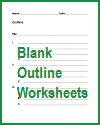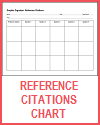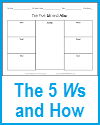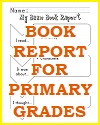| Expository Writing Worksheets |
|---|
| www.studenthandouts.com ↣ ELA: English Language Arts ↣ ELA: Expository Writing |
 |  |  |  |  | ||||||
| Classroom Newsletter Template | Blank Pyramid Charts | Blank Outline Worksheets | Reference Citations Chart with Tutorial | Blank Vertical Flow Chart |
 |  |  |  | |||||||
| Four-square Writing Method Worksheet | Five-paragraph Essay Organizer with Instructions | Five Amazing Facts About | The Five Ws and How Worksheet | Book Report Printable Template |
 |  | |||||||||
| Five Parts of a Story Worksheet | My Basic Book Report: Primary |
|
Expository writing is crucial for students to learn for several important reasons. Effective communication: Expository writing teaches students how to communicate complex ideas, information, and arguments clearly and concisely. These skills are essential for success in both academic and professional settings.  Critical Thinking: Expository writing requires students to think critically and analyze information. They must organize their thoughts, evaluate evidence, and present logical arguments, which enhances their overall critical thinking abilities. Critical Thinking: Expository writing requires students to think critically and analyze information. They must organize their thoughts, evaluate evidence, and present logical arguments, which enhances their overall critical thinking abilities.Information Literacy: In an era of abundant information, students need to develop the ability to research and evaluate sources. Expository writing teaches students how to locate credible sources, extract relevant information, and use evidence to support their claims. Problem-Solving: Expository writing often involves addressing real-world problems or answering complex questions. This process encourages students to develop problem-solving skills and approach challenges in a systematic way. Academic Success: Expository writing is a foundational skill in academic writing. Students who excel in expository writing are better prepared for the demands of higher education, where research papers, essays, and reports are common assignments. Career Readiness: Effective written communication is a valuable skill in virtually any career. Whether drafting reports, emails, proposals, or technical documents, the ability to convey ideas clearly can enhance one's professional prospects. Self-Expression: Expository writing allows students to express themselves and their ideas. It gives them a platform to share their opinions, insights, and experiences, fostering self-expression and confidence. Empowerment: The ability to convey ideas through writing empowers students to advocate for themselves and their beliefs. They can use writing as a tool for social and political engagement. Understanding Others: Expository writing often requires students to consider multiple perspectives and engage with diverse viewpoints. This promotes empathy and a deeper understanding of the perspectives of others. Civic Engagement: In democratic societies, informed citizens are crucial. Expository writing helps students develop the skills to research and write about societal issues, contributing to informed public discourse and civic engagement. Life-Long Learning: Expository writing encourages a habit of life-long learning. Students learn how to seek knowledge, synthesize information, and communicate their findings, skills that are valuable throughout their lives. Digital Literacy: In the digital age, expository writing extends to online platforms, including blogs, social media, and websites. Learning this skill equips students to participate in digital discourse and navigate online information effectively. Expository writing is not just a skill for the classroom; it's a fundamental skill for success in academia, careers, and everyday life. It equips students with the tools they need to express themselves, think critically, engage with complex issues, and contribute to their communities and society as a whole. |
| www.studenthandouts.com ↣ ELA: English Language Arts ↣ ELA: Expository Writing |








